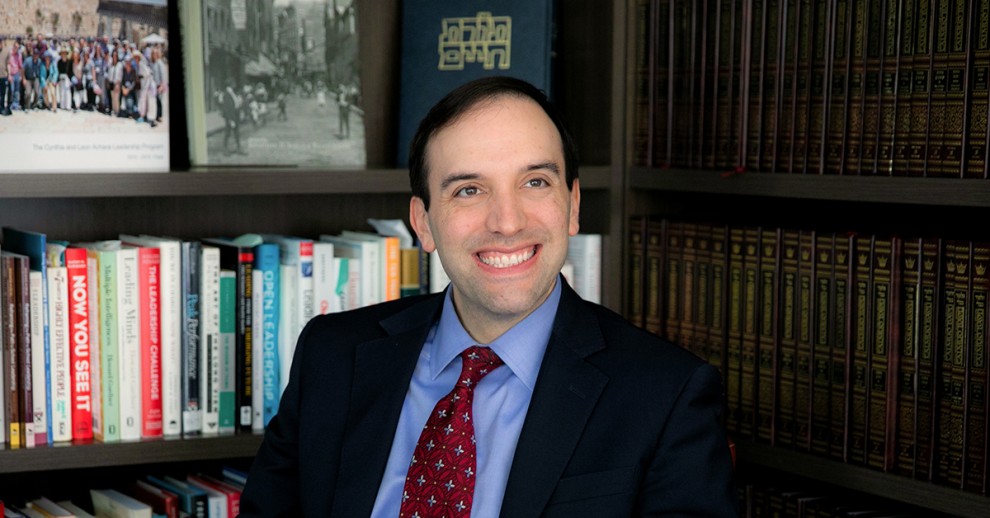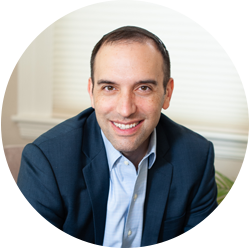
Shalom Chaverim,
As I’m growing older, I’m finding that the joy and lightheartedness of New Year’s Eve is giving way to a more somber and reflective sense of my own and the world’s vulnerability.
I tend to be a person who sees the good and light in the world. Articles such as Nicholas Kristof’s “This Has Been the Best Year Ever” and thinkers like Steven Pinker resonate with me. They remind us to remember the progress we have made and how there are positive things in the world, and not to irrationally dwell in the painful gap between where we are and where we could be.
This past year, perhaps in part because of the media — particularly social media — darkness felt amplified, and I’m feeling the gap that our Jewish community knows too well. The rise in antisemitism, as exemplified by the gruesome stabbing in Monsey on the seventh night of Hanukkah, has reminded us that we are not, as we might have felt just a few years ago, immune to the hatred and violence that our people have experienced throughout our history. And it has reminded us that we are not immune to the antisemitism that always emerges when vicious members of society rear their ugly heads.
We cannot bury our heads in the sand and ignore the realities around us. This means elevating communal security and combatting antisemitism to top communal priorities. This work is well underway at CJP alongside partners across the community and the country. These efforts focus on safety, security, and preparation, as well as education, advocacy, and relationship building, both within and beyond our community.
We saw a beautiful example this week of the power of relationship building in the Massachusetts Council of Churches letter from Christian clergy standing with the Jewish community in condemning antisemitism. This letter reflects both the support of these Christian leaders as well as the consistent hard work and leadership of our Jewish Community Relations Council, Anti-Defamation League, and others in our community.
As I reread the letter, I noticed many powerful aspects, but what moved me most was the fourth word of the salutation: “To our Jewish siblings..."
Perhaps this strikes a particularly deep chord with me this week because our Torah reading is nearing the end of the Book of Genesis as we conclude the powerful and emotional story of Joseph and his brothers. This story and much of Genesis are profound windows into the complexity and fragility of sibling and family dynamics.
After Joseph’s brother, Judah (who believes that Joseph is an Egyptian viceroy), pleads with him for the life of their youngest brother, Benjamin, Joseph at last dramatically reveals himself: “I am Joseph,” he says, immediately followed with the enigmatic question: “Is my father still alive?”
Since, in his plea, Judah had indicated that their father, Jacob, was indeed alive, commentators point out that this might not have been a literal question, but rather a rhetorical expression of amazement. But we might also read this question as not about Jacob, but rather about the sibling relationship. “Is our father still alive? Are we still children of the same father? After all these years and all you have done to me, can we repair our seemingly broken family bonds?”
The brothers are speechless, frozen in the face of Joseph’s revelation and this question. Joseph calls them close and “when they came forward, he said, ‘I am Joseph, your brother.’”
Perhaps the unnecessary addition of “your brother” (we know that he is their brother) is Joseph’s answer to his own question. You tried to kill me, you sold me into slavery in Egypt, we now live separate lives in separate worlds, and you don’t even recognize me. Yet in spite of it all, “od avinu chai, our father still lives” – we are still children of the same parent.
This was a moment of healing. A family that had been riddled for generations by rivalry, division, anger, and resentment, was reunited. The text does not minimize the real trauma that would linger even as the story continued; however, instead of acting from that place of trauma, Joseph saw the pain of his brothers and chose a path of vulnerability, connection, and love.
One of the things that scares me most about the time in which we are living is that, in response to those who would destroy us from without, we will turn on one another and tear ourselves apart from within. As Jews, we have thousands of years of inherited trauma. The fear and anger are real and understandable. Sadly, when we cannot control those who are outside of our family and community, it can be tempting to vilify those who are closest to us.
Let us argue, disagree, even fight with one another. But let us do so from a place of love, compassion, and seeing the vulnerability of the other, rather than from post-traumatic anger, resentment, and fear. The Joseph story reminds us that this applies to our Jewish family: “od avinu chai, our father still lives.” And, I am grateful to our Christian leaders and friends for reminding us that this extends to everyone.
Shabbat Shalom,
Rabbi Marc Baker

About the Author
CJP President and CEO Rabbi Marc Baker is an educator, writer, and leadership mentor who is devoting his life to Jewish learning and building Jewish communities.
